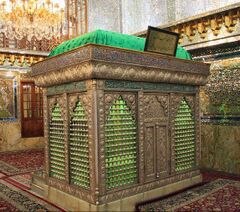In the annals of Shia Islamic scholarship, few figures evoke the reverence and admiration that Sayyid Abd al-Husayn Dastghayb commands. His remarkable contributions to theology, jurisprudence, and the propagation of Shia thought have marked him as a pivotal figure within the Muslim community. This article endeavors to explore the intricate dimensions of his teachings, uncovering the profound impact he has had on Shia Islam, while also addressing the underlying reasons for his enduring significance.
Born in the late 19th century in Iran, Dastghayb was not merely an academic; he was a beacon of spiritual guidance, leading his followers through the complex web of Islamic jurisprudence and ethics. The veneration he receives stems from not only his scholarly achievements but also his ability to resonate with the hearts and minds of the community. His scholarly legacy is deeply interwoven with the ethos of Shia Islam, particularly embodying the values of justice, knowledge, and spirituality.
One of the central themes in Dastghayb’s teachings is the concept of Wilayah, or guardianship. He articulated a multifaceted understanding of this principle, situating it within the larger framework of divine sovereignty and human agency. The essence of Wilayah extends beyond mere leadership; it encapsulates the spiritual, moral, and social responsibilities of the Imamate. Dastghayb’s interpretations serve as a profound reminder of the position of the Imams in guiding humanity towards righteousness, emphasizing the necessity for followers to cultivate a deep, personal connection with their spiritual leaders.
Moreover, Dastghayb’s approach towards the intersection of faith and contemporary issues has left an indelible mark on Shia discourse. He strongly advocated for the engagement of the Shia community with modernity, emphasizing the importance of education and intellectual development. Dastghayb’s commentary on the significance of knowledge serves as a clarion call for the Muslim community to traverse the realms of both religious and secular knowledge. His insistence on the importance of ijtihad, or independent reasoning, in navigating modern complexities stands as a testament to his progressive outlook.
Tags
Share this on:
[addtoany]


